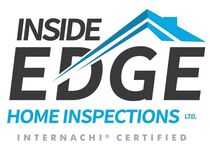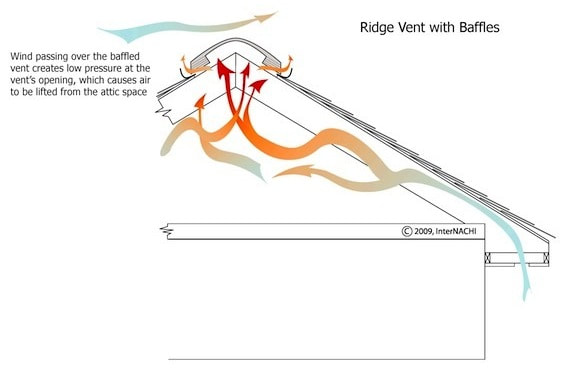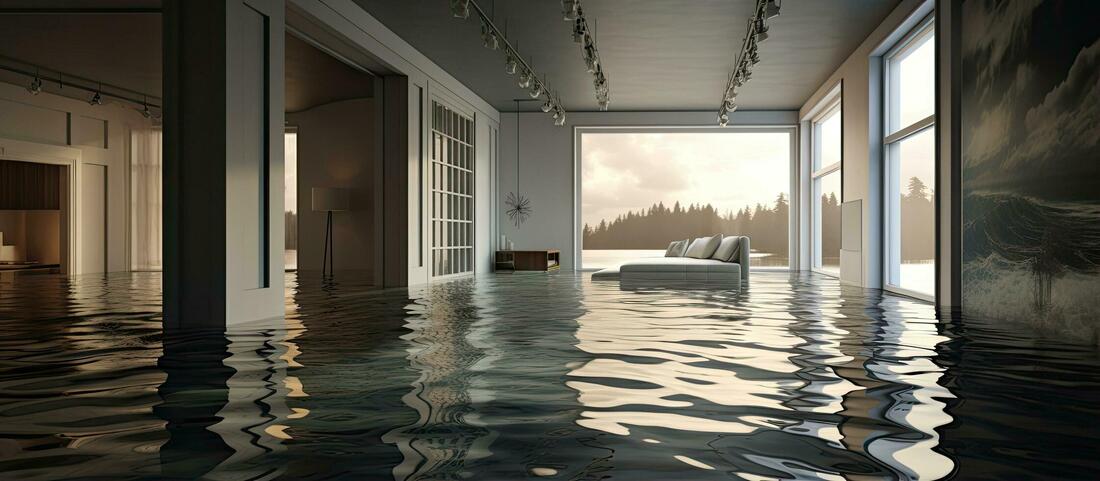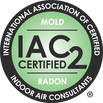Mike's Home Inspector BlogMichael Burfitt |
|
It’s always fun to peek my head into another attic, where many mysteries can be solved: what type of wood is the home constructed of, is there evidence of structural damage, moisture, and pests, or even previous fires, and what is the type of insulation and ventilation. Homes require ventilation and the attic is no exception. There are three basic types of ventilation seen in the attic: soffit, ridge, and gable. Proper ventilation is important for many reasons:
You might think the biggest problem I run into is a lack of ventilation. It’s actually the opposite, with too much ventilation! Yes, there is such a thing as too much. Less is (Sometimes) More! The biggest issue I see is a home that has all three types of vents. This is usually because when roofers do a roof job, they frequently add a ridge vent. Great idea, but it ignores one of the main principles of building science: balance! The issue is known as an attic short circuit. Like an electrical circuit, air flow will follow the path of least resistance. Home builders understand this and know how to balance ventilation (usually 1:300 of the total roof area) between intake (usually soffit vents) and exhaust ventilation (usually ridge vents). While disagreements can result about closing off gable vents when installing ridge vents, the fact remains that a home is a delicately balanced system, and the attic space is no exception. What To Do About It?
The answer is that is a favourite one among lawyers: it depends. If there is no sign of moisture, mould, or condensation it is probably best to leave it alone. If, however, there is clear and obvious organic growth, it is time to take action. Attic spaces should not have visible mould or moisture and a roofing or insulation contractor can provide guidance on the best way to correct this. Remember, simply removing mould isn't good enough: it WILL return unless the root cause is identified and corrected. Luckily, this is an area where I rarely see problems as usually only skilled professionals work in attic spaces. Congratulations on taking the step to becoming a homeowner! I know both as a home inspector and a homeowner (well, technically the bank still owns it, but you get the idea), owning a home is a wonderful milestone, especially in this crazy market! It also comes with its fair share of responsibilities and potential headaches that all the shiny real estate brochures tend to gloss over. As a seasoned home inspector, I've seen it all – from minor issues that could have been easily prevented to major problems that could have been costly to fix (think six figures!). To help you navigate your new role as a homeowner, here are four essential insights that I wish every new homeowner knew: Regular Maintenance Saves Money in the Long Run Many homeowners underestimate the importance of regular maintenance. Simple tasks like cleaning gutters, changing HVAC filters (furnace filters need to be replaced every 3 months), and inspecting caulking around windows and doors may seem insignificant, but they can prevent costly repairs down the line. While easier said than done, try to create a maintenance schedule and stick to it to keep your home in top condition. With the snow gone and warm weather on the way, now is the perfect time to plan out a summer maintenance schedule like I just did, and hopefully the rain will stop so I can continue to get more done. Know Your Home's Systems Understanding how your home's systems work can save you from headaches in the future. Take the time to familiarize yourself with the location of:
Know when and how to perform basic troubleshooting, and always have emergency contact information for professionals in case of major issues (trust me: emergencies never wait for your schedule to clear!). (Over) Budget for Repairs and Upgrades
Owning a home inevitably comes with repair and maintenance costs. Create a budget for both expected and unexpected expenses, including repairs and upgrades. Prioritize projects based on urgency and budget constraints and remember to set aside funds for emergencies. Being financially prepared can alleviate stress when unexpected issues arise. Spoiler from a homeowner and home inspector: repairs and renovations almost always cost a lot more than you budget for and the cheap option usually ends up being the costliest. Stay Proactive Don't wait until a minor issue becomes a major problem. Stay proactive by addressing maintenance tasks promptly and addressing any issues as soon as they arise. Ignoring small problems can lead to bigger headaches and expenses down the line. Whether it's a leaky faucet or a cracked foundation, tackle issues head-on to preserve the integrity of your home. I learned this one at an early age working at a home improvement retailer and saw the many faces of distressed homeowners who did not act proactively or tried to cut corners with cheap DIY "fixes". Being a homeowner comes with its challenges, but with proper knowledge and preparation, you can navigate the responsibilities with confidence. By staying proactive, investing in inspections (*ahem* particularly from a Certified Professional Inspector like me!), understanding your home's systems, and budgeting for maintenance and repairs, you can ensure that your home remains a safe and comfortable haven for years to come with minimal surprises. Happy homeownership! |
Archives
April 2024
Categories
All
|



 RSS Feed
RSS Feed

